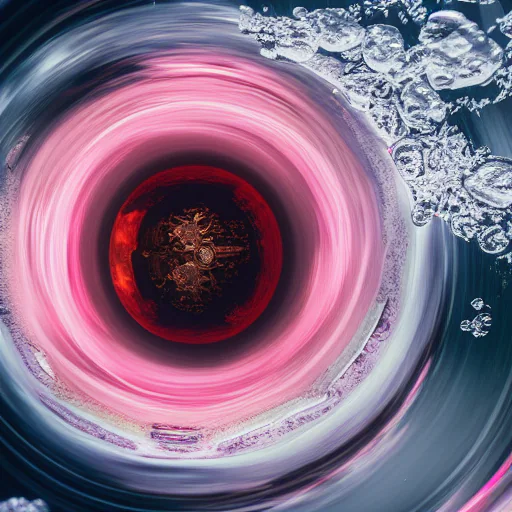You might have heard that your blood can boil if you get too angry. But is this actually true? And what temperature does blood actually boil at?
In this article, we’ll answer all your questions about boiling blood. We’ll tell you what the temperature of blood is, and we’ll explain what happens to your blood when it’s heated to this temperature. We’ll also tell you what boiling blood feels like, and we’ll tell you about some of the myths and legends surrounding this topic.
Table of Contents
The boiling point of blood
Under normal atmospheric pressure, blood boils at the same temperature as water: around 100 degrees Celsius, or 212 degrees Fahrenheit.
The boiling point of blood is affected by the concentration of dissolved solutes in it. This means that blood with more salt (NaCl) will have a higher boiling point than blood with less salt. The concentration of dissolved solutes in the blood is about 0.9% or 0.154 moles per kilogram (liter), which results in a boiling point elevation of about 0.158 degrees centigrade.
The addition of salt to water increases the boiling point of the water. This is because salt molecules interfere with the ability of water molecules to form hydrogen bonds with each other. As a result, it takes more energy to bring the water to a boil.
The boiling point elevation of 0.154 degrees centigrade is not enough to pose a danger to human health. However, it is worth noting that increased salt concentration can lead to serious health problems, such as high blood pressure.
In conclusion, the boiling point of blood is slightly higher than pure water due to the presence of salt. However, this difference is not significant enough to pose a threat to human health.
What is the temperature of blood?
Blood temperature is usually around 98.6℉ (37℃), which is the same temperature as your body normally is. If you get too cold or too hot, thermoregulation helps bring your temperature back to normal. You may shiver or sweat, or your blood vessels may dilate or constrict.
These mechanisms work together to keep your blood temperature within a safe range. If your blood gets too warm, you may feel dizzy, faint, or sweaty. If your blood gets too cold, you may feel chilly or develop hypothermia.
You can measure your blood temperature with a thermometer. A digital thermometer is the most accurate type of thermometer. To use one, simply place the sensor under your tongue and wait for a few seconds. The sensor will then beep, and your blood temperature will be displayed on the screen.
If you don’t have a thermometer, there are other ways to check your blood temperature. You can touch your skin to see if it feels warm, cold, or normal. You can also check your pulse. A normal pulse is 60-100 beats per minute. If your pulse is faster than normal, it may be a sign that your blood is too warm. If your pulse is slower than normal, it may be a sign that your blood is too cold.
You can also check your breathing. If you are breating faster than normal, it may be a sign that your blood is too warm. If you are breating slower than normal, it may be a sign that your blood is too cold.
Finally, you can check your urine. If your urine is dark yellow, it may be a sign that your blood is too warm. If your urine is clear or very light yellow, it may be a sign that your blood is too cold.
Can your blood boil in your body?
First, the good news: Your blood won’t boil. On Earth, liquids boil at a lower temperature when there’s less atmospheric pressure; outer space is a vacuum, with no pressure at all; hence the blood boiling idea.
Now for the bad news: You will explode. If you’re exposed to the vacuum of space, the air inside your body will expand. Since your skin is relatively elastic, it will expand with the air until it ruptures. And then all your insides will come bursting out, because that’s what happens when a container can no longer contain something under pressure.
So how long would you have before you exploded? That depends on how well your skin can stretch. If we assume that an average human can withstand about three times their normal atmospheric pressure, then most people would last about 10 seconds in a vacuum. But that’s just an estimate—it’s possible that people could withstand more or less pressure, depending on their individual physiology.
Of course, you wouldn’t just explode and die instantly if you were exposed to the vacuum of space. First, you’d pass out from lack of oxygen. Then you’d suffocate as the air in your lungs expanded and ruptured your chest cavity. And only after all that would your body implode from the sudden drop in atmospheric pressure.
So even though your blood won’t boil in space, it’s still not a pleasant place to be. If you find yourself there, try to hold your breath and stay calm until help arrives.
What does boiling blood feel like?
It’s not like what you see in the movies. If the liquid in your blood stream started boiling, it would turn into gas that would make your skin swell. NASA makes it clear that your body wouldn’t explode and your eyes wouldn’t pop out of your head like many science fiction movies suggest. However, you would swell up and get really painfully puffy.
The sensation would be incredibly uncomfortable and hot. Boiling water is hot enough on its own, but when it’s coursing through your veins, it would be unbearable. You would feel like your insides were on fire, and the pain would be excruciating.
Your skin would also start to turn red and blister. Boiling water causes burns, and when it’s inside your body, those burns would be serious. The blisters would form quickly, and your skin would start to peel off.
Eventually, you would lose consciousness. The pain and the heat would be too much for you to handle, and you would pass out. At that point, your organs would start to shut down one by one, and you would die.
While boiling blood might sound like a good way to die in a horror movie, it’s actually a slow and incredibly painful way to go.
What temperature does human blood freeze?
Blood freezing to nearly absolute zero temperature: -272.29 degrees C.
Did you know that human blood can freeze at an incredibly low temperature? In fact, it can freeze at nearly absolute zero! That’s an incredibly cold -272.29 degrees Celsius.
How does this happen? Well, when blood freezes, the water in it starts to form crystals. These crystals can start to damage the cells in your blood, and that’s why it’s so important to keep your blood warm.
There are some conditions where your blood can actually start to freeze in your body. This is called hypothermia, and it can be extremely dangerous. If you think you might be suffering from hypothermia, it’s important to get medical help right away.
In most cases, though, you don’t have to worry about your blood freezing. Your body does a pretty good job of keeping itself warm, even in cold weather. So as long as you’re not in danger of hypothermia, you should be just fine.
Does your blood boil when mad?
We have all been there. You get cut off in traffic, someone talks behind your back, or you just do not get that raise you were expecting at work. The anger starts to bubble up and before you know it, you are seeing red.
But what exactly is happening to our bodies when we get angry? We know that our heart rate quickens and we may even start to sweat. But what about that old wives’ tale that our blood actually begins to boil?
It turns out that there is some scientific evidence to back up this claim…sort of. When we experience intense emotions, such as anger, our bodies go through a primitive form of the fight-or-flight response.
The fight-or-flight response is an evolutionary mechanism that kicks in when we are faced with danger. This necessitates a massive release of energy so that we can either fight or flee from the threat.
A study published in the journal Frontiers in Human Neuroscience found that when people became angry, there was an increase in blood flow to the brain. While this does not mean that our blood is literally boiling, it does show that the body is responding to anger in a very physical way.
The next time you are feeling angry, remember that it is not just all in your head. Your body is going through some serious changes too!




